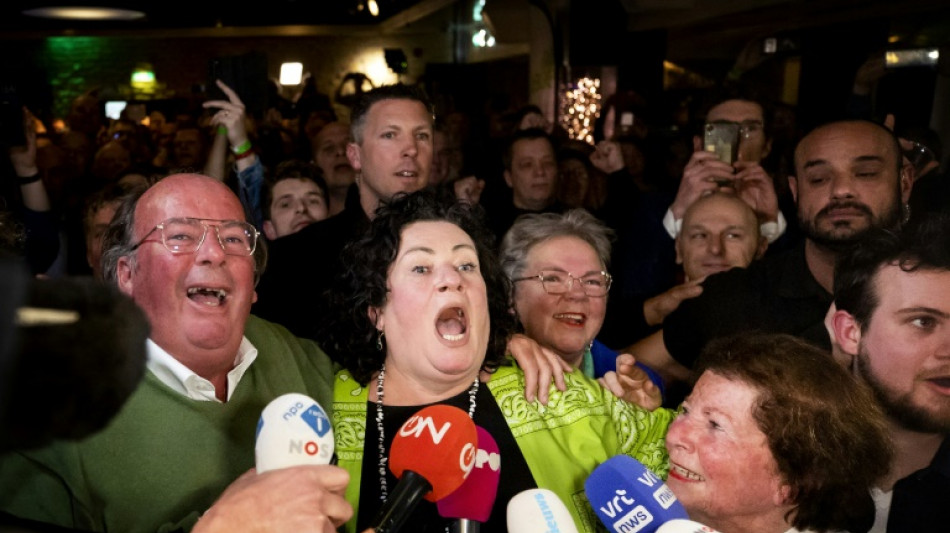
SCS
0.2300


The Netherlands woke up to a political earthquake Thursday after a farmers' protest party won key elections, throwing the government's environmental policies into doubt.
The upstart Farmer-Citizen Movement (BoerBurgerBeweging) or BBB, which was only set up four years ago, is set to be the biggest party in the Dutch senate with 15 seats.
The party rode a wave of protests against plans by Prime Minister Mark Rutte's ruling coalition to cut nitrogen emissions by slashing livestock numbers and possibly closing farms.
The Dutch protests garnered global attention and reaped international support, including from former US president Donald Trump and a host of far-right figures.
"The people have made their voices heard, and how," BBB leader Caroline van der Plas said as the results emerged overnight. "The coalition should take this very seriously."
Wednesday's Dutch regional elections -- which are crucial as they determine the shape of parliament's upper house -- saw the BBB win the most votes in eight of the country's 12 provinces, final results showed on Thursday.
Several Dutch newspapers described it as a "monster victory". The daily De Telegraaf headline said "Kabbboem" - a play on the party's name and the sound of an explosion.
- 'Historic' -
The BBB tapped into wider populist sentiments, including people who felt ignored by Rutte, the Netherlands' longest serving leader now in his 13th year in power.
"The historic gain of the BoerBurgerBeweging is the result of many protest votes," wrote Marleen de Roy, political reporter for the NOS public broadcaster.
Rutte's Freedom and Democracy Party (VVD) was beaten into second place, with a projected 10 seats in the 75-seat senate, with almost 90 percent of votes counted.
"It is not the win we wanted," Rutte said late Wednesday.
The results leave a headache for Rutte, whose four-party coalition took a hammering that leaves it well short of a senate majority and unable to pass legislation on its own.
Dutch media said the farmers were now headed for a showdown with a bloc formed by the environmental GroenLinks (Green/Left) party and the Labour Party (PvdA), which together also won 15 senate seats.
The BBB could work with right-wing parties opposed to the government's nitrogen plans -- while GroenLinks and Labour have complained that the proposals do not go far enough.
- 'Puzzle' -
"Voters have left the government with a complex political puzzle," the leftist De Volkskrant daily newspaper said.
Both sides would demand "substantive concessions" to cooperate with Rutte, it added.
The farmers' leader Van der Plas -- who appeared on the front of several newspapers covering her mouth in shock with her trademark bright green fingernails -- immediately vowed to challenge the farms policy.
The Dutch government says it needs to reduce nitrogen emissions by 50 percent by 2030, blaming fertilisers and manure from agriculture in particular for pollution.
It says it must comply with a Dutch court order saying it had breached EU rules on nitrogen emissions affecting soil and water.
But the farmers say they are being treated unfairly compared to other industries.
Their cause has resonated in the tiny lowlands country that is proud of its farming tradition and its position as the world's second largest agricultural exporter after the United States.
Farmers have held months of protests, blockading government buildings with tractors and dumping manure on motorways. They also rallied in The Hague on Saturday ahead of the vote.
Meanwhile the far-right party that won the last provincial elections in 2019, the Forum for Democracy, lost most of its seats after its leader hailed Russian President Vladimir Putin as a "hero" and pushed Covid conspiracies.
M.McCoy--TFWP